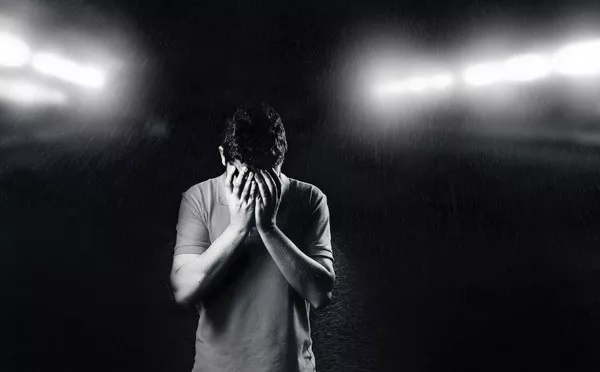A psychiatric emergency is a critical and often life – threatening situation that involves a severe disturbance in a person’s mental state. These emergencies can present in various forms, from acute episodes of psychosis to suicidal or homicidal ideation and behavior. Recognizing and appropriately managing psychiatric emergencies is crucial not only for the well – being of the individual in crisis but also for the safety of those around them. This article aims to provide a comprehensive understanding of what a psychiatric emergency is, its common causes, symptoms, and the appropriate response strategies.
Definition and Scope
A psychiatric emergency can be defined as a situation in which an individual’s mental health condition has deteriorated to the point where immediate intervention is required to prevent harm to themselves or others. It is not merely a worsening of a pre – existing mental illness but a state of crisis that demands urgent attention.
The scope of psychiatric emergencies is broad. It includes conditions such as severe depression with a high risk of suicide, acute mania with dangerous behavior, drug – induced psychosis, and violent outbursts due to underlying mental disorders. These emergencies can occur suddenly, catching both the individual and their families off – guard, or they can be the culmination of a gradually worsening mental state.
Common Types of Psychiatric Emergencies
Suicidal Crisis
Suicide is one of the most serious and life – threatening psychiatric emergencies. It often occurs in the context of severe mental illness, such as major depressive disorder, bipolar disorder, or schizophrenia. Risk factors for suicide include a history of previous suicide attempts, social isolation, substance abuse, and a family history of suicide.
Individuals in a suicidal crisis may exhibit a variety of warning signs. These can include talking about suicide, giving away personal belongings, withdrawing from social activities, and expressing feelings of hopelessness and worthlessness. They may also engage in self – harm behaviors, which can be a precursor to a more serious suicide attempt.
Homicidal Ideation and Aggression
Homicidal ideation refers to thoughts of killing another person. This can be a result of various mental disorders, such as schizophrenia with paranoid delusions, severe personality disorders, or in the context of drug – induced states. Aggressive behavior, which may or may not be directly related to homicidal thoughts, can also be a psychiatric emergency.
Aggression can range from verbal threats to physical violence. In some cases, individuals may become aggressive due to a misinterpretation of their environment, such as in the case of a person with psychosis who believes they are being attacked. It is important to note that not all aggressive behavior is a sign of a mental disorder, but when it is accompanied by other symptoms of mental illness, it becomes a significant concern.
Acute Psychosis
Psychosis is a state in which a person loses touch with reality. It can manifest as hallucinations (seeing, hearing, or feeling things that are not there), delusions (false beliefs), and disorganized thinking. Acute psychosis can be a result of a variety of factors, including schizophrenia, bipolar disorder, substance abuse (such as cocaine or methamphetamine use), and certain medical conditions like brain tumors or infections.
During an acute psychotic episode, individuals may be extremely confused, agitated, and unable to take care of themselves. They may also pose a danger to themselves or others due to their distorted perception of reality. For example, a person with paranoid delusions may believe that someone is out to harm them and may act aggressively in self – defense.
Severe Anxiety and Panic Attacks
While anxiety and panic attacks are common mental health issues, in some cases, they can reach a level that constitutes a psychiatric emergency. Severe anxiety can lead to a state of extreme distress, where the individual may feel as if they are losing control or having a heart attack.
Panic attacks, which are sudden episodes of intense fear and discomfort, can be particularly debilitating. In some cases, individuals may experience multiple panic attacks in a short period, or the attacks may be so severe that they interfere with normal functioning. In extreme cases, individuals may become suicidal due to the overwhelming nature of their anxiety.
Catatonia
Catatonia is a neuropsychiatric syndrome that can be a psychiatric emergency. It is characterized by a range of motor and behavioral symptoms, including stupor (a state of near – unconsciousness), mutism (not speaking), rigidity (stiffness of the body), and posturing (assuming abnormal body positions).
Catatonia can be associated with various mental disorders, such as schizophrenia, bipolar disorder, and major depressive disorder. It can also be caused by medical conditions, such as encephalitis or metabolic imbalances. Left untreated, catatonia can lead to serious physical complications, such as dehydration, malnutrition, and pressure ulcers.
Causes of Psychiatric Emergencies
Mental Illness
The most common cause of psychiatric emergencies is underlying mental illness. Conditions such as schizophrenia, bipolar disorder, major depressive disorder, and personality disorders can all lead to acute episodes that require immediate intervention. For example, a person with bipolar disorder may experience a manic episode that is characterized by extreme euphoria, increased energy, and risky behavior. If left untreated, this can lead to financial ruin, legal problems, or physical harm to the individual.
Substance Abuse
Substance abuse is another significant cause of psychiatric emergencies. Alcohol and drugs, such as cocaine, methamphetamine, and hallucinogens, can have a profound impact on a person’s mental state. Substance – induced psychosis, for example, can cause hallucinations, delusions, and aggressive behavior.
Withdrawal from substances can also be a trigger for psychiatric emergencies. For example, alcohol withdrawal can lead to delirium tremens, a severe condition characterized by confusion, hallucinations, and tremors. Opioid withdrawal can cause severe anxiety, depression, and in some cases, suicidal thoughts.
Medical Conditions
Certain medical conditions can contribute to psychiatric emergencies. Brain injuries, such as those caused by trauma or strokes, can lead to changes in personality, mood, and behavior. Infections, such as meningitis or encephalitis, can also cause psychosis and other mental disturbances.
Metabolic disorders, such as diabetes or thyroid problems, can also affect a person’s mental state. For example, low blood sugar levels in a person with diabetes can cause irritability, confusion, and even seizures. Hyperthyroidism can lead to anxiety, restlessness, and in some cases, psychosis.
Psychosocial Stressors
Psychosocial stressors can play a significant role in triggering psychiatric emergencies. Major life events, such as the death of a loved one, divorce, job loss, or financial problems, can be overwhelming for some individuals. Chronic stress, such as living in a high – stress environment or experiencing ongoing abuse, can also contribute to the development of mental health problems.
For example, a person who has recently lost their job and is facing financial difficulties may become severely depressed. If they have a pre – existing mental illness, this stressor can push them into a psychiatric emergency.
Symptoms of Psychiatric Emergencies
Behavioral Symptoms
Behavioral symptoms are often the most obvious signs of a psychiatric emergency. These can include aggression, self – harm, excessive agitation, and withdrawal from social contact. A person in a psychiatric emergency may also engage in risky behavior, such as driving recklessly or engaging in unprotected sexual activity.
Emotional Symptoms
Emotional symptoms can range from extreme sadness and hopelessness to intense anger and irritability. Individuals may experience rapid mood swings, going from extreme elation to deep depression in a short period. They may also display signs of anxiety, such as restlessness, sweating, and rapid breathing.
Cognitive Symptoms
Cognitive symptoms can include confusion, disorientation, and impaired judgment. A person in a psychiatric emergency may have difficulty thinking clearly, making decisions, or remembering things. They may also experience hallucinations and delusions, which can further distort their perception of reality.
Physical Symptoms
Physical symptoms can accompany psychiatric emergencies. These can include changes in appetite, sleep disturbances, fatigue, and headaches. In some cases, individuals may experience physical symptoms that are a result of the stress on their body, such as high blood pressure or chest pain.
Recognition of Psychiatric Emergencies
Recognizing a psychiatric emergency is the first step in providing appropriate care. Family members, friends, and healthcare providers need to be aware of the signs and symptoms of psychiatric emergencies. It is important to note that these symptoms can vary depending on the underlying cause of the emergency.
In cases of suicidal crisis, look for warning signs such as talking about suicide, changes in behavior, and giving away personal belongings. In the case of acute psychosis, watch for signs of hallucinations, delusions, and disorganized thinking. Aggressive behavior, if accompanied by other symptoms of mental illness, should also raise concerns.
If a person is experiencing severe anxiety or panic attacks, and these are interfering with their ability to function or are accompanied by thoughts of suicide, it is a psychiatric emergency. Catatonia can be recognized by the presence of motor and behavioral symptoms, such as stupor, mutism, and rigidity.
Response to Psychiatric Emergencies
Pre – Hospital Response
The first response to a psychiatric emergency often occurs outside of a hospital setting. Family members, friends, or bystanders should try to remain calm and assess the situation. If the person is a danger to themselves or others, it is important to call emergency services immediately.
While waiting for emergency services, try to keep the person safe. Do not approach the person in a threatening or confrontational manner. Instead, speak in a calm and reassuring voice. If the person is experiencing a panic attack, try to help them take slow, deep breaths.
Hospital – Based Response
Once the person arrives at the hospital, they will be evaluated by a mental health professional, such as a psychiatrist or a psychiatric nurse. The initial evaluation will include a detailed history of the person’s mental health, medical history, and the events leading up to the emergency.
The person may undergo a physical examination to rule out any medical conditions that could be contributing to their mental state. Laboratory tests, such as blood tests or urine drug screens, may also be performed. Based on the evaluation, the mental health professional will develop a treatment plan.
Treatment may include medication to manage symptoms, such as antipsychotics for psychosis or antidepressants for depression. In some cases, hospitalization may be required to ensure the person’s safety and provide intensive treatment.
Psychotherapy, such as cognitive – behavioral therapy or family therapy, may also be initiated to help the person address the underlying issues.
Community – Based Follow – Up
After the acute phase of the psychiatric emergency has passed, community – based follow – up is essential. This may include outpatient therapy, support groups, and case management services. Community mental health providers can help the person manage their mental illness, prevent future emergencies, and reintegrate into society.
Prevention of Psychiatric Emergencies
Preventing psychiatric emergencies is an important aspect of mental health care. This involves early detection and treatment of mental illness, as well as addressing the underlying causes of mental health problems.
For individuals with a pre – existing mental illness, it is important to adhere to their treatment plan. This includes taking medications as prescribed, attending therapy sessions, and participating in support groups. Regular check – ups with a mental health professional can also help monitor the person’s condition and make any necessary adjustments to their treatment.
Addressing psychosocial stressors is also crucial in preventing psychiatric emergencies. This can involve providing support to individuals who are facing major life events, such as job loss or the death of a loved one. Community resources, such as counseling services and support groups, can be invaluable in helping people cope with stress.
Reducing substance abuse is another important prevention strategy. Education about the risks of substance abuse, as well as access to treatment programs, can help individuals avoid the negative effects of drugs and alcohol on their mental health.
Conclusion
Psychiatric emergencies are serious and often life – threatening situations that require immediate attention. Understanding what a psychiatric emergency is, its common causes, symptoms, and appropriate response strategies is essential for healthcare providers, family members, and the general public. By recognizing the signs and symptoms of psychiatric emergencies, providing appropriate care, and taking steps to prevent them, we can improve the lives of individuals with mental illness and reduce the risk of harm to themselves and others. It is important to remember that mental health is just as important as physical health, and early intervention can make a significant difference in the outcome of a psychiatric emergency.
Related topics:
What Is Acute Psychiatric Care?

































